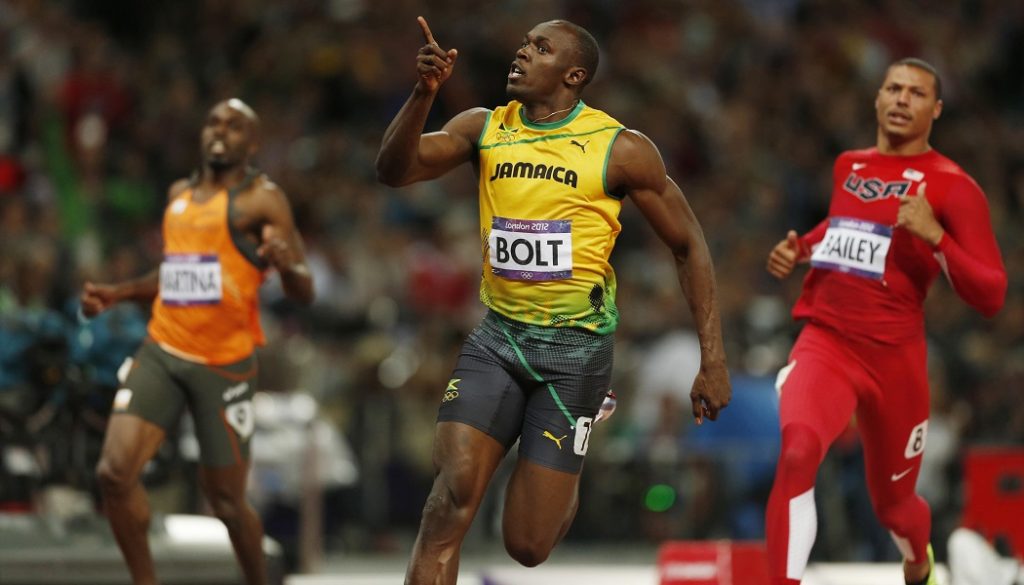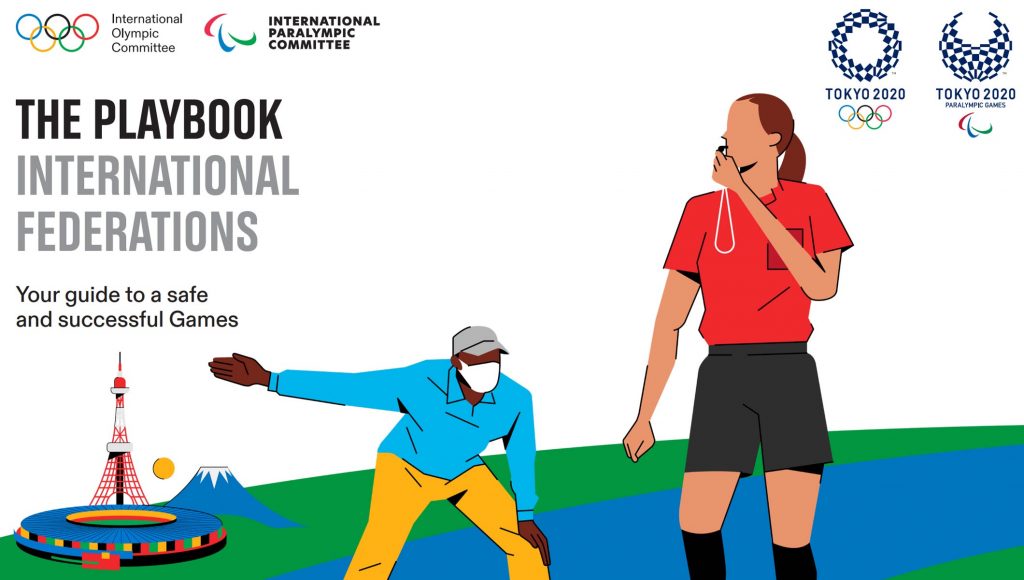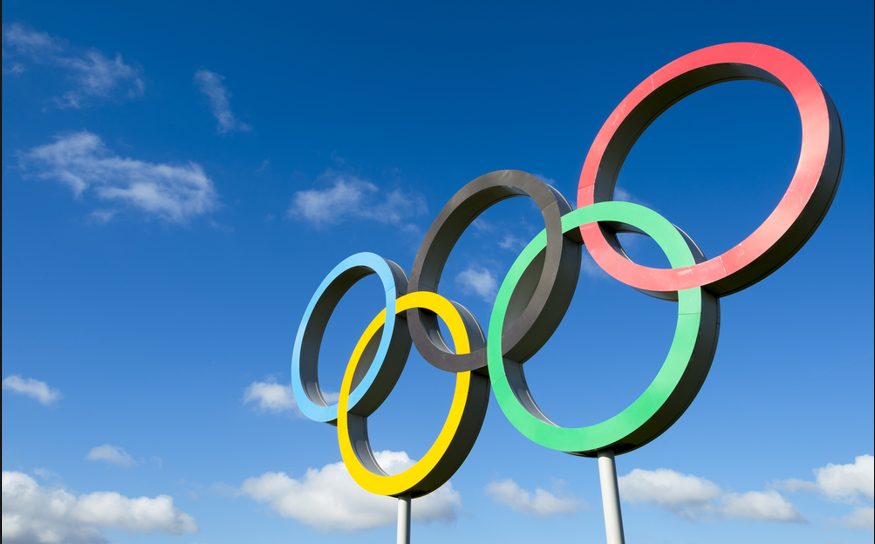Playing For The Games: Tokyo Playbooks Vital To Ensure A Safe Olympics
February 5, 2021
The first Olympic playbook for the Tokyo Games has been released amid much anticipation and concern about the safety and future of the event. Michael Pirrie, executive adviser to the London 2012 Olympic Games committee, analyses the long awaited blueprint for Tokyo and explains why it may be the most important plans produced for the Games.
A year ago, Tokyo had been preparing to scale the final summit of its ten year expedition to the Mount Everest of sport – the Olympic and Paralympic Games, until the sudden COVID-19 global emergency blocked the final ascent to world sport’s roof.
This followed fears conditions would be too dangerous, forcing Games organisers back to base camp to find an alternative pathway back to the Olympic Games.
It was no thin veil of light rain or mist that was blocking views back to the Olympic peaks; the vision for the Tokyo Games had disappeared in a viral blizzard that blanketed the planet and its sporting landscapes.
“Dark clouds of uncertainty may now be starting to lift with the long awaited release of the first playbook for the Tokyo Games.”
The way ahead was obscure. Organisers could do little but hold out in hope for a miracle cure or sudden drop in infection levels.
London staged the first ‘survival’ Olympics in 1948 following the Second World War, taking the world from war to sport. The circumstances are different for Tokyo with the worldwide battle against the virus far from won.
With no known plan devised to stage a mega international event like the Olympics in a pandemic, there was no clear consensus on how to proceed nor which pathway to take.
Those dark clouds of uncertainty may now be starting to lift with the long awaited release of the first playbook for the Tokyo Games. The playbooks provide directions for Games stakeholders such as athletes and technical officials on how to avoid spreading and developing infection in Tokyo.
With international travel and major events regarded as potential super spreaders, much is riding on playbook protocols.
NEW GAMES PLAN
The Games plan does not rely on a vaccine strategy. Instead, there is a strong focus on screening of Japan-bound athletes and officials pre-departure and on arrival, and on regular testing before, during and after the Games.
The success of the protocols – and the Games – will depend on rigid enforcement and compliance with playbook rules, which will need to be implemented on a vast scale never before attempted.

With billions of dollars of Games revenues for sports riding on Tokyo, along with the safety of Japanese society and integrity of the Olympic brand, the playbooks may be the most important plans ever produced for a world sporting event.
The staging of the Beijing Winter Olympics just six months after Tokyo further highlights the importance of the protocols.
The playbooks are the culmination of extensive consultation with medical, scientific and public health experts, along with months of exhaustive planning work led by IOC executive member and Games strategist, John Coates, Tokyo organisers, Japanese government officials and senior IOC staff, including Christophe Dubi and Pierre Ducrey.
The Olympic Games masterplan is one of the most complex pieces of project management in the world. It is usually at minimum a seven year undertaking involving thousands of contributors and consultants, the Tokyo plan has been reworked around the playbooks in closer to seven months.
While Olympic administrators cautioned Tokyo would be different, the first published playbook gives a glimpse of how different.
Playbook policies have been shaped to the contours of the pandemic, and include proven countermeasures against infection and transmission.
DIFFERENT GAMES
This includes air borne transmission of the virus, which recently prompted French President Macron to request passengers to refrain from speaking while on the metro.
The sounds of silence will also fill Tokyo venues.
Olympic officials must not cheer or sing and must wear masks to minimise the risk of contact with virus particles transmitted from other people.
“Olympic organisers are hoping the playbooks, underpinned by strong scientific and public health principles – and an abundance of caution – will quell doubts about safety of the Games.”
The possible risk from virus-infected air lingering in rooms, hallways and other high use and shared areas of accommodation and competition will have major implications for protocols in the Athletes Village and Games venues.
These will be outlined in a special playbook for athletes along with supporting information to national Olympic committees about air flow and ventilation systems to protect occupants in Games venues.
TURNING POINT
With new infections starting to fall in Tokyo, Olympic organisers are hoping the playbooks, underpinned by strong scientific and public health principles – and an abundance of caution – will quell doubts about safety of the Games.
The lack of information previously available on Games protocols while organisers worked feverishly to reinvent the Olympic model for Tokyo created a massive communications vacuum that led to rampant speculation.
A climate of confusion and uncertainty formed in the wider international community, which Tokyo hopes can be eased by the playbooks.
This uncertainty reached a tipping point recently amid reports – subsequently denied by the Japanese Prime Minister – that the Games may be cancelled.
Olympic organisers were adamant the Games would still go ahead despite the adversity of a new state of emergency and record daily deaths globally.
IOC President Thomas Bach was more circumspect, acknowledging that “at this moment” there was no reason to believe the Olympic Games would not proceed as planned.
The IOC President stressed the focus was on how and not if the Games would happen, but the playbooks provide the How of the Tokyo Games.

Much is riding on the playbooks to help convince the international community, including epidemiologists, as well as Tokyo residents that the Games can be staged safely.
While the massive scale of the Games poses the greatest challenge, shrinking numbers could reduce risks significantly.
LIMITING THE GAMES – LIMITING THE VIRUS
Organisers plan to contain the virus by strictly limiting the numbers, movements, locations and contacts of participants to essential Games areas and limited time in the city.
Limits will be placed on where and how Games participants can travel at the Games. This will restrict virus exposure sites, contact points and potential spread of the virus amongst Olympic athletes, support staff and officials and beyond into local communities.
Playbook protocols may be further adjusted to prevailimg pandemic conditions in order to resolve high impact and high risk public health issues in the countdown to the Games.
These include the presence of spectators, who, if allowed, may be limited in numbers to around 30-40 percent of venue capacity, depending on local infection levels.
This is in line with recommendations by virus safety experts, including US corona czar Dr Anthony Faucci.
Because of the inherent high risk posed by international visitors, it is likely any spectators may be limited primarily to Japanese citizens.
CONCLUSION
Tokyo’s efforts to free the Games from the grip of the pandemic while Japan continues to recover from the devastating earthquake tsuannmi nearly 10 yers ago have been unstoppable like the virus itself.
These efforts, though questioned by some, are perhaps best reflected in the mission statement from the NASA playbook used to salvage the seemingly doomed astronauts in the stricken Apollo 13 moon mission: “Failure is not an option.”
“The new playbooks contain a raft of health policies that may form a vital safety net for the Games.”
Athletes and global communities are now hoping Tokyo’s own playbooks can save the Games.
This virus has challenged many signs of hope, recently claiming the British WW II veteran and pandemic hero, Captain Sir Tom Moore.
Moore’s crusade to help Covid patients raised millions in charity after the centenarian knight, supported by his reliable walker, shuffled 100 laps of his front garden and walked step by step into hearts everywhere.
MOORE IS NEEDED
British Prime Minister and former London Olympic mayor Boris Johnson described Moore as “a beacon of hope for the world.” Moore’s trusty garden walker now stands alone.
If asked for his humble opinion of the situation, legendary sleuth Hercule Poirot might describe the corona virus as “a most cruel and capable enemy.”
More hope is needed, and Tokyo organisers believe the Olympic Games can also be a much needed symbol of optimism, resilience and courage in the Covid devastated world. The new playbooks contain a raft of health policies that may form a vital safety net for the Games.
New and more infectious and deadly variants present a different and more complicated challenge than when the Games was first postponed. But these provide a much needed compass and roadmap out of the darkness that has covered Olympic landscape since the onset of the pandemic
Instead of a blank canvas, organisers now have a plan designed around the health of Games participants and host city and not just hope.
MICHAEL PIRRIE is a communications adviser and commentator on major international events including the Olympic Games.


